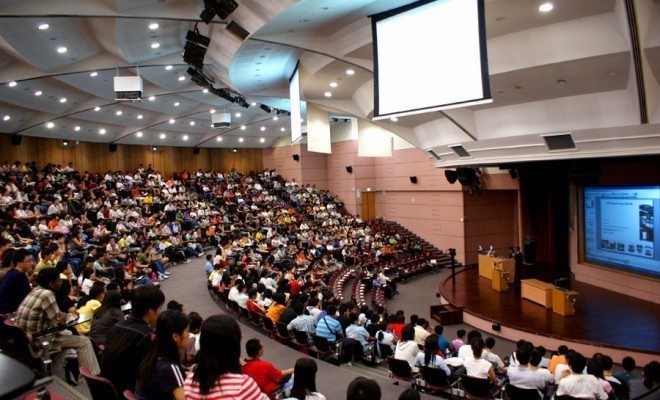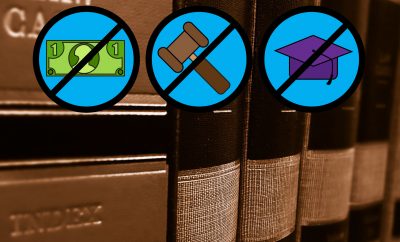 Image Courtesy of [teddy-rised via Flickr]
Image Courtesy of [teddy-rised via Flickr]
Schools
Law School Uses AMC’s ‘Breaking Bad’ as Teaching Tool
Yes, you read the title right. Incorporating elements of pop culture, like “Breaking Bad,” into the classroom has become a popular new trend for undergraduate and graduate schools looking to engage their students. Schools such as the University of New Mexico have begun using pop culture case studies as instructional tools, while others major universities including Rutgers, the University of South Carolina, UC Berkeley, and Georgetown have opted to design courses dedicated entirely to singers, movies, television shows, sports, and other celebrities.
Have you ever considered the legal ramifications that fictional meth producers Walter White and Jesse Pinkman would have faced in the real world, as well as the questionable legal practices of defense attorney, Saul Goodman? A class at the University of New Mexico Law School analyzed the legal issues surrounding this popular television show and published their findings in a student-run journal for the school.
From The New Mexico Law Review “Breaking Bad” edition. http://t.co/xSmSg84ONg pic.twitter.com/1gYrz12VQy
— Ed Bott (@edbott) May 20, 2015
The students of this criminal law class, as well as the other contributing professors who helped to create this journal, found a multitude of legal issues within “Breaking Bad.” They discovered the actions of the show’s DEA agents to be controversial in certain instances and obviously illegal at other times, and yet these fictional agents were never stopped or questioned.
Saul’s practices as a lawyer are very shady and illegal, as he is known for laundering money to drug lords and going beyond his legal reach. When examining how Walter would likely be prosecuted, the students concluded that he would most likely receive a harsh sentience but avoid the death penalty in real life since the practice is no longer used in the state of New Mexico. While this show was very entertaining for viewers, it was not always realistic due to the exaggerated and felonious actions of most of the characters.
Other universities have chosen to create classes entirely pop-culture themed. At the University of New Hampshire, a class was created to analyze Deflategate–the recent scandal where the New England Patriots football team was accused of deflating its footballs before a game–as well as other sporting events and how they relate to the legal system. UCLA Law School has also joined in on this trend with a course called Law and Pop Culture, where students are assigned the task of watching popular television shows or films relating to the legal system, including lawyers, the criminal justice system, and the jury, which they will later apply to their coursework.
There are also many options available for undergraduate students who are interested in learning about their favorite pop-culture subjects. Famous singers such as Lady Gaga, Miley Cyrus, and Beyonce now all have classes devoted to them and studying their fame, allowing students to draw connections to subjects like sociology and philosophy.
According to the Mother Nature Network (MNM), movies such as Harry Potter, Spiderman, and Star Trek are all subjects of classes analyzing the popular franchises. MNM also noted that many popular television shows have become the core focus of several college classes throughout the country, such as The Simpsons, Judge Judy, and Days of Our Lives.
Times are changing, and as a result universities are beginning to recognize that in order to better accommodate and attract students to their schools, they have to vary their course offerings. No matter what you are interested in, there is probably a course out there that would appeal to you. Comparing core principles of classes to new themes could actually be a very effective way of maintaining students’ attention, as well as give them new ways to better comprehend course material.
What topics would YOU like to see being incorporated into your classes?








Comments